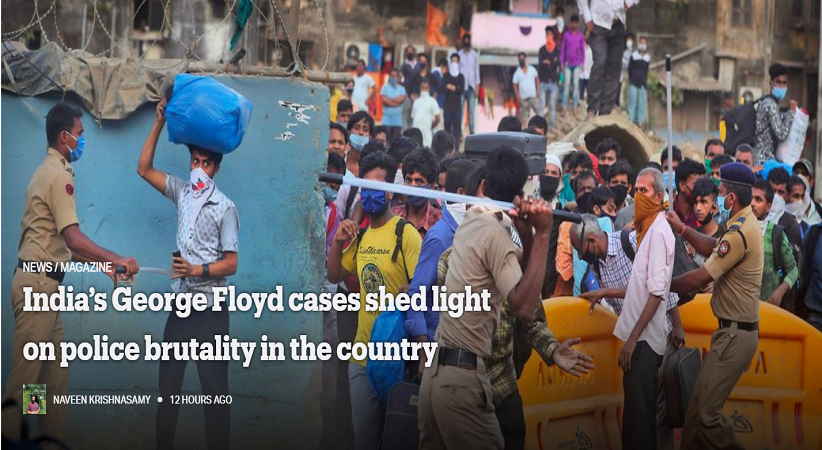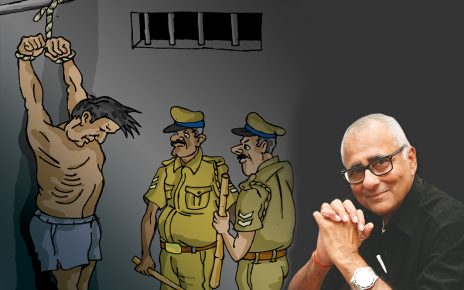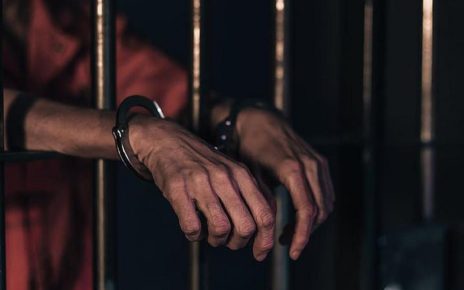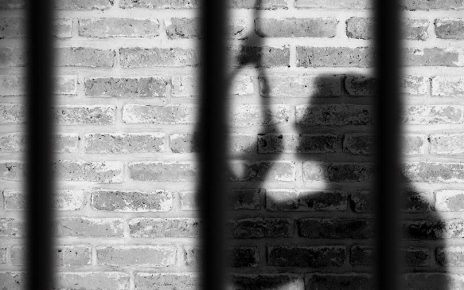TRT World
20 July 2020
How torture in police custody recently caused two deaths and triggered a strong movement against the heavyhandedness of Indian police.
A young woman stares directly into the camera. Bespectacled and steadfast in her conviction, she wears a face of resignation and disappointment.
“Hi, I’m Suchitra, I’m South Indian and I hate how every South Indian issue becomes just a South Indian issue because we don’t talk about it in English.”
She’s a popular radio personality and singer based in the state of Tamil Nadu in South India. Her assertion is a poignant one – activists have been vocal about the privilege North Indians and, in general, Indians with fairer skin, hold in the nation’s entertainment industry, media and its news cycles.
She continues, “this video is in English and it is to explain, in graphic detail, what happened to Jayaraj and his son Fenix in this past one week in a town in my state called Thoothukudi… First, their knees were smashed with sticks; they were completely crushed and smashed. Next, their faces were pushed against a wall and blows were rained on their backs and bottom till it ripped and bled…”
These gruesome details of torture were not the result of terrorism, or gang violence. They came from the hands of the police in what is being dubbed the George Floyd cases of India. Two men were killed because they reportedly kept a mobile phone kiosk open past coronavirus lockdown curfews by just 15 minutes.

Sathankulam is a small town in the district of Thoothukudi in India’s Tamil Nadu state, characterised by strong working class unions and mid-to-low income demographics. According to eyewitnesses and encounter reports, on the night of June 18, police officers admonished 59 year old P. Jayaraj for keeping his store open past the 8pm curfew. Apparently unsavoury words were exchanged, with some of the officers being informed of Jayaraj’s disgruntled sentiments by way of a local auto-rickshaw driver. This information resulted in the police returning to the area the next day to confront the shopkeeper about his statements. What followed was an apparent altercation in which Jayaraj was arrested and taken to Sathankulam police station between 7.30 and 8pm on June 19. After hearing about the arrest, his son and fellow store-owner, E. Bennicks, also known as Fenix, quickly made his way to the police station to inquire about his father.
According to a senior police officer, Bennicks witnessed his father being physically harassed and tried to step in to protect him. Unfortunately, his move only provoked the police officers, four of whom took the father and son away to holding cells and continued to thrash the two men. A total of 13 police officers were reportedly in the station during the incident, including volunteers from the Friends of Police organisation that assist with community policing and have alleged ties to the Rashtriya Swayamsevak Sangh (RSS), a violent right-wing party that promotes Hindu supremacy in India.
“They were taken to a spot where there were no CCTV cameras,” Suchitra continues in her viral video, her voice beginning to falter. “Steel-tipped wooden lathis, or batons… were shoved up their buttholes several times, and there was also a great deal of torture or damage inflicted on their genitalia because eyewitnesses of the body have… said that both the genital region and the backside were completely ripped and mangled.”
Eyewitness accounts confirm that Jayaraj and Bennicks were subjected to violence and torture until the early hours of the next morning – in fact, some of their friends and family claim to have waited outside the station until 1.30am, and alleged they could hear the screams and cries for help from their loved ones.
Hours after they left, the family was called back to take the father and son to the local Sathankulam Government Hospital at roughly 7:05am on June 20 – almost twelve hours after they had been arrested. Jayaraj and Bennicks were treated for almost two hours and presiding medical officer, Dr. Venilla, was asked to conduct the mandatory ‘performa for health screening of prisoners on admission to jail’. Some accounts suggest that the request was adorned with a handwritten memo from a police inspector insisting that the two had sustained injuries whilst ‘rolling around on the ground’ and resisting arrest.
According to Jayaraj’s son in law, their clothes were soaked in blood, and their undergarments needed to be changed multiple times. He mentioned that they were constantly surrounded by police officers at all times while in the hospital, and that despite their apparent injuries, Dr. Venilla’s report didn’t mention any serious health concerns, and in fact cleared their conditions for arrest – leading some to believe that the report could have been produced under coercion from the police.
As per Indian penal law, those committed for an offence with a punishment of less than seven years imprisonment are to attend a judicial magistrate hearing within 24 hours of arrest to determine the punishment to be doled out. So, by 11.25am on June 20, after their family had reoutfitted them multiple times, Jayayraj and Bennicks were produced in front of judicial magistrate D. Saravanan for a hearing. Except, accounts of this hearing are a little hazy.
Varying stories tell of the two being purposefully held in a vehicle outside while the police inspectors spoke with the magistrate in confidence. Other accounts suggest they were physically removed from the hearing and kept under close watch by multiple police officers. One story says the magistrate simply addressed his decision on the matter to the police from his office window.
Regardless of the true account, the order for remand was passed without the magistrate observing the physical condition of the accused, nor completing a full assessment of discrepancies within the police’s First Information Report (FIR), which goes against the new Criminal Rules of Practice that came into effect January 1, 2020.
“These (offences were) not grave in nature,” surmised R. Karunanidhi, an advocate based in Madurai, Tamil Nadu. He’s also a practicing lawyer for the Madurai Bench of the Madras High Court, so has been following the entire case very closely.
“See, the allegation is that they did not close the shop, and they did not obey the government servant order. The judicial magistrate who remanded these deceased persons should have applied his mind, before this remand.”
A stickler for due legal process, and a firm believer in the law as a solution to its own problems, Karunanidhi was adamant in his belief that the judicial magistrate was worryingly lax in his duties. “At least if they (were) sent for medical treatment, they would have (been) alive today… I strongly make my allegations against the judicial magistrate who remanded these deceased persons. He must be sent for departmental action.”
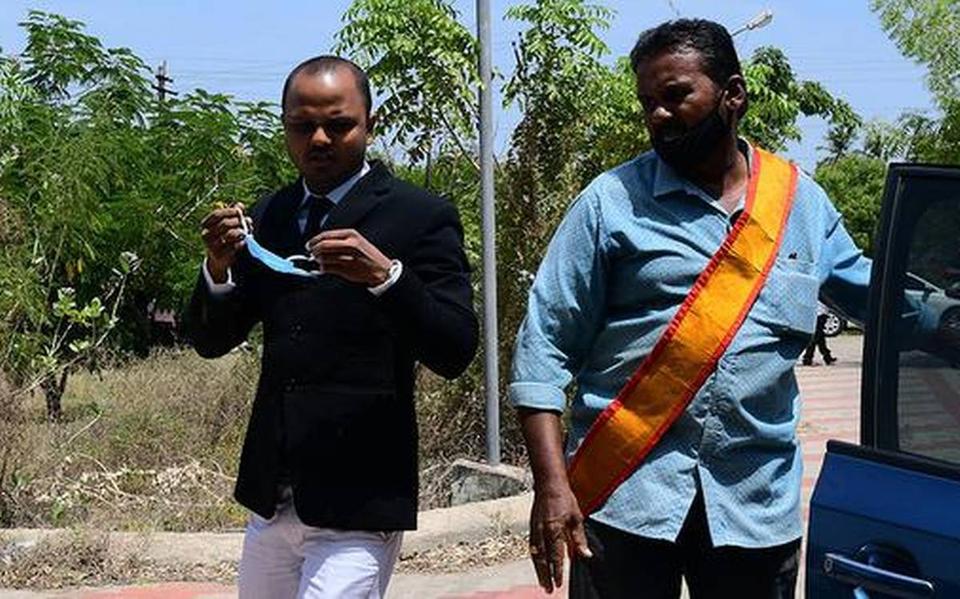
As a result of the magistrate hearing, Jayaraj and Bennicks were to be transported to jail – however, according to police testimonies, the local jails were running at full capacity due to enforced coronavirus measures. To prevent overcrowding, Jayaraj and Bennicks were referred to a smaller holding facility in Kovilpatti, over 100km away, until they could be transferred to a more central jail. The apparent laxity in judgement by the judicial magistrate has led some to believe that the transferral to a minor sub jail far from the victims’ families was but brash overstepping by police authority.
In Kovilpatti, they remained for almost two days, until 7.30pm on June 22, when Bennicks was rushed to the local Kovilpatti General Hospital. He was pronounced dead at 9pm, apparently succumbing to heavy internal bleeding. Later that evening, Jayaraj was also rushed to the same hospital with severe respiratory problems and, around 5.40am, early morning on June 23 died, reportedly from a punctured lung.
The custodial deaths of the father and son triggered mass protests across Tamil Nadu through late June, with trade union bodies leading strikes and demonstrations in the name of justice. Jayaraj’s wife, Selvaranni, filed a written complaint to the district criminal court, alleging that her husband and son were murdered by the Sathankulam police along with volunteers from the Friends of Police organisation.
Three police officers were initially suspended, and the entire policing staff at the Sathankulam Police station were transferred to other locations with replacements. However, mounting pressure from influencers, celebrities, cricketers, and even political leaders, eventually saw the state government refer the case to the Central Bureau of Investigation (CBI) on June 28th, with the hearing passed onto the Madras High Court.

